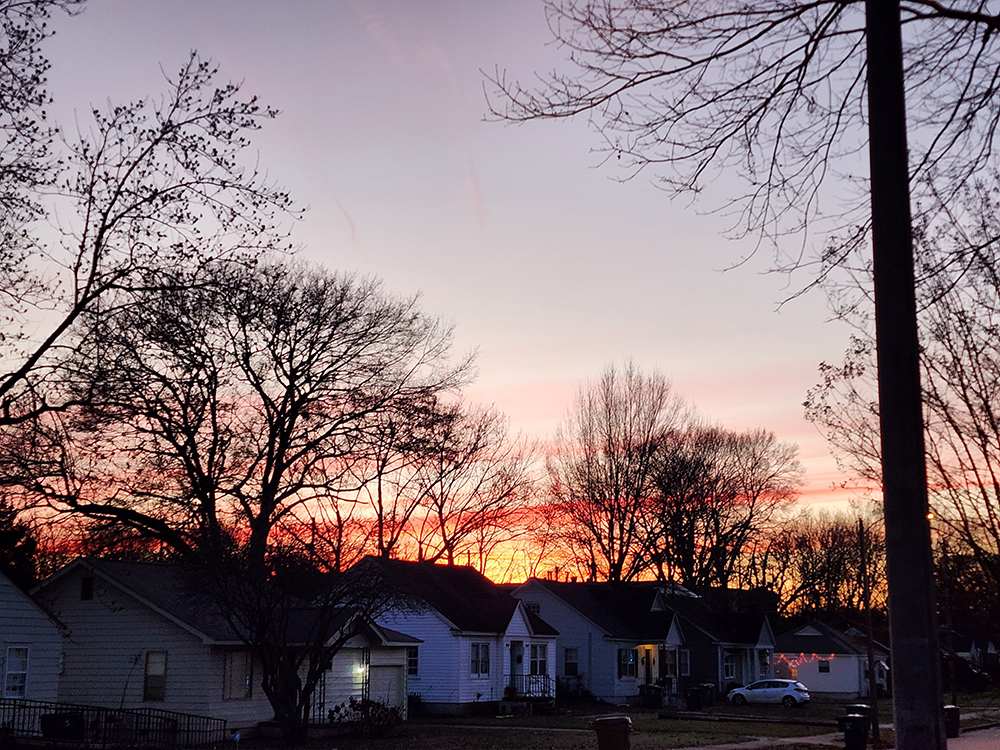I’ve been thinking about the way, when you walk
down a crowded aisle, people pull in their legs
to let you by. Or how strangers still say “bless you”
when someone sneezes, a leftover
from the Bubonic plague. “Don’t die,” we are saying.
And sometimes, when you spill lemons
from your grocery bag, someone else will help you
pick them up. Mostly, we don’t want to harm each other.
We want to be handed our cup of coffee hot,
and to say thank you to the person handing it. To smile
at them and for them to smile back. For the waitress
to call us honey when she sets down the bowl of clam chowder,
and for the driver in the red pick-up truck to let us pass.
We have so little of each other, now. So far
from tribe and fire. Only these brief moments of exchange.
What if they are the true dwelling of the holy, these
fleeting temples we make together when we say, “Here,
have my seat,” “Go ahead — you first,” “I like your hat.”
— Danusha Laméris, “Small Kindnesses”
“We have so little of each other, now,” Laméris writes in the book Healing the Divide: Poems of Kindness and Connection. She’s right. Even those moments she conjures with her words are few and far between. Four years after the collective isolation felt worldwide during the lockdowns of the Covid era, isolation persists. Apathy grows.
Many business offices have closed, leaving 9-to-5ers working from home, bidding a bitter farewell to the camaraderie of office culture. Many “connections” are made via email or chat channels or social media, through the rectangular black mirrors we gaze into day in and day out, a screen rather than eye to eye; handshakes and hugs traded for thumbs-up and heart emojis. Much is lost in the digital world. And in the “real world,” much has changed. We shop online to avoid human interaction and long lines; grocery stores and retail outlets are understaffed, contributing to those longer lines; commuters angrily pass us only to rush to red lights, perhaps flipping the bird as they do; the patrons at the table next to us are impatient and rude to the server. Staying home is less stressful. So much for connectedness.
Friends and family (at least in my world) rarely have time to spend together; everyone’s too busy with kids, jobs, errands, chores. Such is adult life, it seems — chained to schedules, too tired when the day is done to connect with much more than our beds. Gone are the tribes in a time where we exchange most of our waking hours to pay the bills, to fund our creature comforts. That communal fire is out.
I do still seek the fleeting temples — chances to offer a smile to a stranger, give thank-yous to those who show small kindnesses. Although the world seems to have lost its softness, it can still be found through the rough patches if you’re open to it. My fleeting temples of late have mostly been in nature, admiring the new blossoms on my walks — signs that spring is coming; saying hello to my favorite neighborhood dog Lucy through her chain link fence; gazing at a full moon and the stars splashed across the dark canvas of sky; chasing a glorious fiery pink sunset.
In my continued quest for more sacred moments, if we cross paths, I’ll call back to tribe and fire, to remind you we don’t inherently want to cause harm to one another. I’ll help you pick up your spilled lemons, pull my legs in to let you by, allow you to pass in traffic without a middle finger. Bless you (heart emoji). Don’t die.
